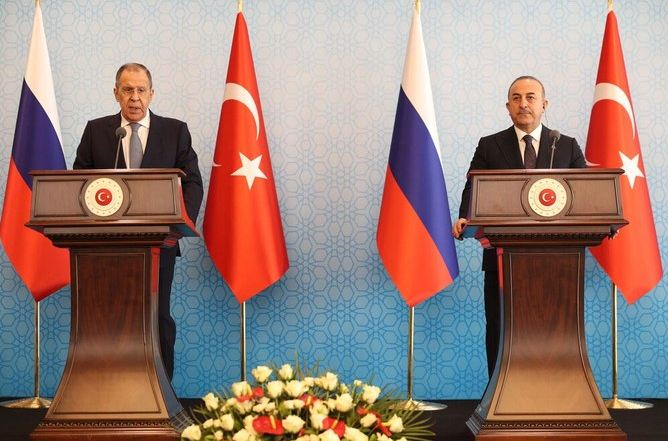Russia: Western nations need to eliminate barriers to its grain exports
Ankara – If the West does not remove barriers to Russian agricultural exports, Russia may withdraw from a wartime agreement that permits the shipment of Ukrainian grain to international markets, Moscow’s top diplomat suggested on Friday.
The accord, which was mediated by the UN and Turkiye in July, released cargoes that were stranded in the mined and blockaded ports of Ukraine, reducing the rise in food prices and the prospect of famine in some nations.
Russian grain and fertilisers were to be exported more easily according to a different deal. Moscow has consistently argued that the agreement does not benefit Russian agricultural exports, which have encountered obstacles in reaching international markets as a result of Western sanctions.
Russian Foreign Minister Sergey Lavrov informed reporters during a joint press conference with his Turkish colleague that Russia decided last month to prolong the agreement for 60 days rather than the 120 days specified in the last extension in order to convey a warning message to the West.
Moscow’s discontent was expressed by Lavrov: “After we extended the deal for 120 days, we saw no indication that those issues could be resolved and grew tired of appealing to the conscience of those who determine it.””
On the presumption that if there is no improvement in reducing the barriers to the sale of Russian fertilisers and grain, we would consider whether the contract is necessary, we made a tiny escalatory move and offered to prolong the deal for only 60 days.
Lavrov dismissed the Western claim that sanctions do not apply to Russian food and fertiliser. In his statement, he stated that “challenges related to financing, logistics, transportation, and insurance of Russian exports have remained and have even become more difficult.”
Despite the fact that Russian wheat exports reached or came close to record highs in November, December, and January, according to financial data provider Refinitiv, experts claim that private shipping and insurance companies are still wary of handling Russian commodities due to the conflict in Ukraine.
According to Lavrov, the UN-Turkey deal on Russian agricultural exports has effectively been blocked by the West, which is why “we’ve asked for letters of comfort from certain governments.”
Later this year, Russia may decide to work directly with Turkiye and Qatar to make sure grain reaches the nations that require it, rather than consenting to another extension.
Turkish Foreign Minister Mevlut Cavusoglu said he and Lavrov “agreed that the obstacles to the export of Russian grain and fertiliser should be removed immediately” after his nation joined the UN and Ukraine in calling for a 120-day extension before the agreement on Ukrainian exports ended last month.
Cavusoglu stated, “We appreciate the continuance of the deal. “This is significant not just for Russia’s and Ukraine’s exports of grains and fertiliser. Additionally, it is crucial for easing the global food crisis, particularly the one that affects every home in the world.
Lavrov’s warning was similar to one made by Russian President Vladimir Putin last month, who stated that Moscow could stop taking part in the project if the requirements were not met. Putin stated that as part of a package deal, Russia would seek the liberalisation of its own agricultural exports.
Additionally, Lavrov and Cavusoglu spoke about Russian attempts to bring Syria and Turkey together. To aid in the reconciliation, Moscow earlier this week convened the deputy foreign ministers of Turkey, Syria, and Iran.
During the Syrian civil war, Turkiye has supported armed opposition groups who have aimed to topple President Bashar Assad’s administration. Large areas of northwest Syria are under Turkiye control, and Damascus is putting pressure on Ankara to evacuate its troops before relations can be normalised.
Turkiye, on the other hand, is seeking security assurances, notably those relating to Syrian Kurdish insurgents that Ankara views as terrorists.
Cavusoglu remarked, “We recognise that not all concerns can be resolved in one or two meetings. But the conversation must go on, and it would be advantageous if the conversations continued in the same manner.



